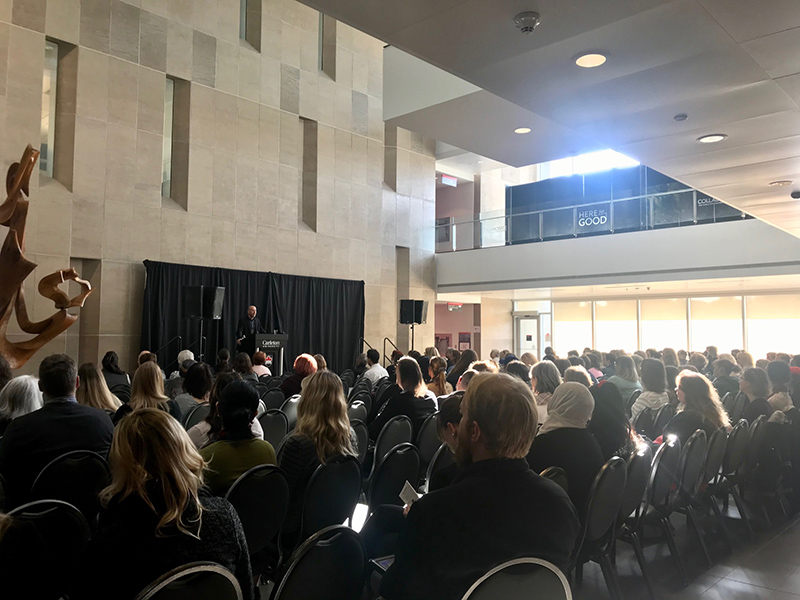Breaking the Stigma Around Mental Health and Substance Use
Life is not easy. It’s also beautiful, but by definition it’s not easy. No one gets an entirely smooth ride. All of us to various degrees carry trauma from our past, face difficult circumstances in the present, and experience some anxieties about our own future and the future of society.
It’s entirely normal that at times those stresses and pressures cross a threshold into mental health issues. Can we talk openly about this, and can we support those in need, and each other? The only acceptable answer is yes.
It was the great Olympian Clara Hughes who freed me from the isolating barrier of stigma by speaking publicly about her own struggles. Like so many, I am eternally grateful for her courage.
Trying to follow her example, I’ve been sharing my own mental health and substance use journey. On Oct. 10, I spoke at our second annual Psychology Mental Health Day, appropriately held on World Mental Health Day, and during Mental Illness Awareness Week.
I was amazed that almost 500 people registered for a full day of talks focused on raising awareness on mental health issues and the promotion of well-being. I am so impressed by the willingness of our community to engage with these difficult and important issues.
Every time we speak out, stigma recedes. In September, I was proud to take part in Recovery Day Ottawa, and in November, I will speak as a keynote at the annual Excellence Canada Summit in Toronto. As Gord Garner, inspirational founder of Recovery Day says: “Stigma ends with me!”
The fact is we all carry a burden and as I wrote in a previous blog last year, mine was growing up in a dysfunctional family. My father, bless his soul, was carrying his own heavy burden and never sought help. In his mind that would have been to show weakness.
That is exactly what stigma does – it prevents people from getting the help they need and deserve, and perpetuates suffering.
We are all on a journey of healing, and there’s nothing more important than to hear, respect and honour each other’s individual journeys. That’s our common humanity and no one should have to suffer alone.
Mental health support at Carleton
Faculty and staff may access the Employee and Family Assistance Program for immediate, confidential assistance 24/7 at myfseap.ca or by calling 613-725-5676.
Carleton offers a wide variety of resources and services that allow students to manage and maximize their mental health and well-being. To find the level of support that best meets a student’s individual needs, visit the Mental Health and Well-Being website to learn more about campus events, peer support, Therapy Dogs, online resources and other campus services.
Students who are having persistent difficulties or who are in distress, may wish to seek counselling support and can phone or come in person between 8:30 a.m. and 4:30 p.m. Monday to Friday, to Health and Counselling Services, CTTC Building, Suite 2600. Same Day counselling is available every weekday to support students. Students may also call at 613-520-6674 or walk in to schedule an appointment. https://carleton.ca/health/counselling-services
Students living in Residence can see a counsellor between 8:30 a.m. and 4:30 p.m. Monday to Friday, at 131 Renfrew. Students can call 613-520-2600, ext. 8061 or walk in to schedule an appointment. Drop in counselling is available every afternoon.
Carleton’s comprehensive plans to meet the mental health needs of our community in a spirit of continuous improvement are the Student Mental Health Framework 2.0 and Healthy Workplace Strategic Plan.
